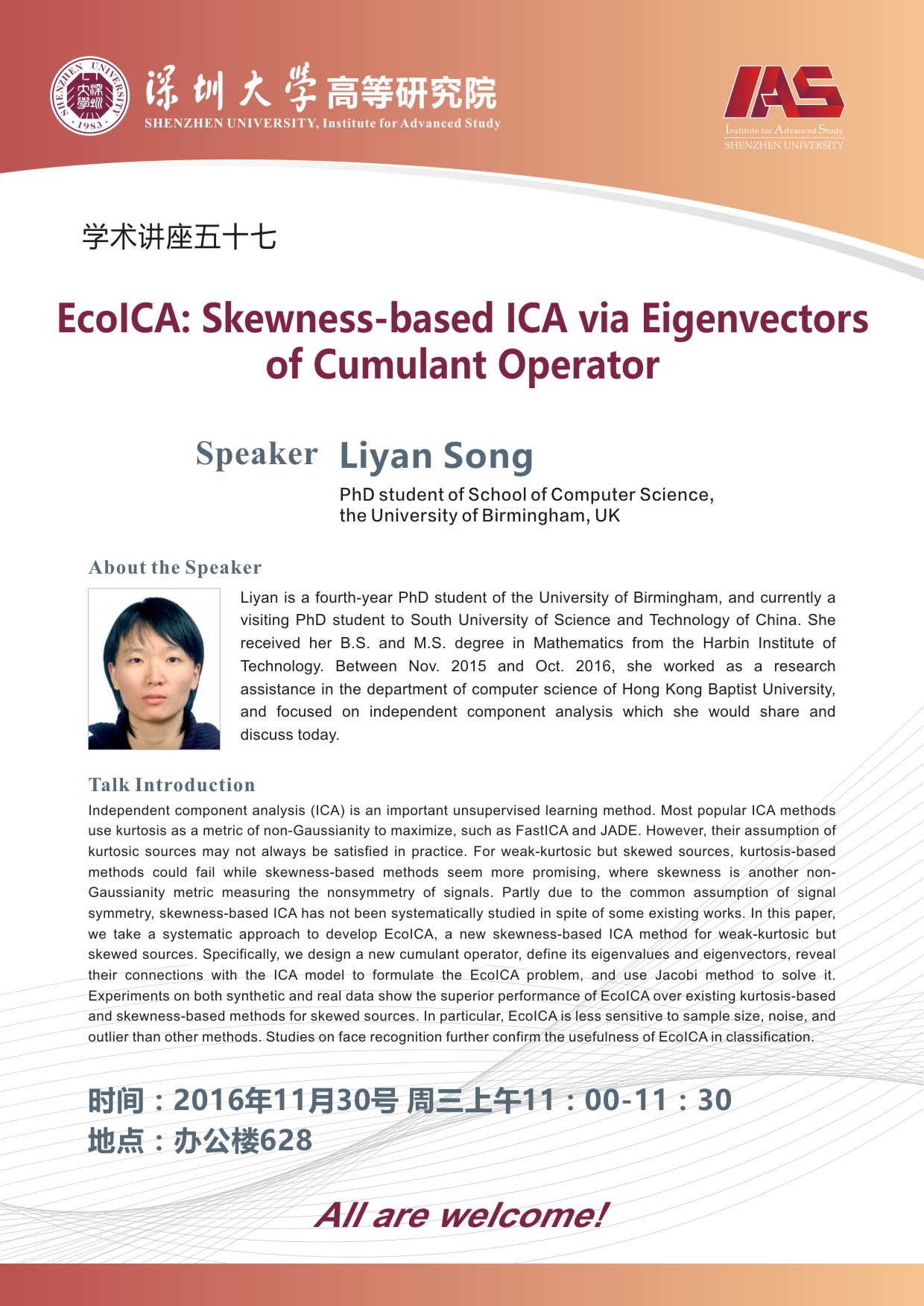EcoICA: Skewness-based ICA viaEigenvectors of Cumulant Operator
Liyan Song
PhD student of School of Computer Science, theUniversity of Birmingham, UK
About the Speaker
Liyan is a fourth-year PhD student of the Universityof Birmingham, and currently a visiting PhD student to South University of Science andTechnology of China. She received her B.S. and M.S. degree inMathematics from the Harbin Institute of Technology. Between Nov. 2015 and Oct.2016, she worked as a research assistance in the department of computer scienceof Hong Kong Baptist University, and focused on independent component analysis which she would share and discuss today.
Talk Introduction
Independent component analysis (ICA) is an importantunsupervised learning method. Most popular ICA methods use kurtosis as a metricof non-Gaussianity to maximize, such as FastICA and JADE. However, theirassumption of kurtosic sources may not always be satisfied in practice. For weak-kurtosicbut skewed sources, kurtosis-based methods could fail while skewness-basedmethods seem more promising, where skewness is another non-Gaussianity metricmeasuring the nonsymmetry of signals. Partly due to the common assumption ofsignal symmetry, skewness-based ICA has not been systematically studied inspite of some existing works. In this paper, we take a systematic approach todevelop EcoICA, a new skewness-based ICA method for weak-kurtosic but skewedsources. Specifically, we design a new cumulant operator, define itseigenvalues and eigenvectors, reveal their connections with the ICA model toformulate the EcoICA problem, and use Jacobi method to solve it. Experiments onboth synthetic and real data show the superior performance of EcoICA overexisting kurtosis-based and skewness-based methods for skewed sources. Inparticular, EcoICA is less sensitive to sample size, noise, and outlier thanother methods. Studies on face recognition further confirm the usefulness ofEcoICA in classification.
时间:2016年11月30号11:00-11:30
地点:办公楼628会议室(原620-12会议室)
欢迎全校师生参加!



